
Frédéric Chédin
University of California, Davis
USA
EMBO | EMBL Symposium
EMBO and EMBL are committed to sharing research advances and sustaining scientific interaction throughout the coronavirus pandemic. We are delighted to announce that this conference is going virtual and invite you to join us online.
RNA biology is intimately interlinked with DNA metabolism on multiple levels, and the crosstalk between the two nucleic acids involves potential for both conflicts as well as cooperative relationships. On the one hand, gene expression poses a considerable risk for genome maintenance and vice versa. On the other hand, the machineries involved in RNA and DNA transactions are known to cooperate in several important aspects of nuclear biology. This symposium will bring together scientists studying genome maintenance and the DNA damage response with those investigating the biology of transcription and RNA biology in order to discuss these mutual interactions of DNA and RNA metabolism.

University of California, Davis
USA

The Institute of Cancer Research
UK

University of Würzburg
Germany

University of Milan
Italy
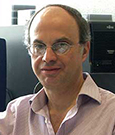
University of Geneva
Switzerland
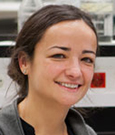
University of Navarre
Spain

The University of Edinburgh
UK

University of Toulouse
France

Vanderbilt University
USA
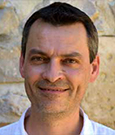
CNRS – Université de Montpellier
France
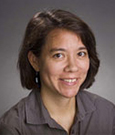
University of Texas at Austin
USA

University of Birmingham
UK

University of Massachusetts Medical School
USA
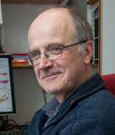
University of Oxford
UK
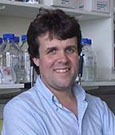
MRC Laboratory of Molecular Biology
UK
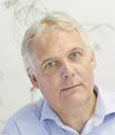
The Francis Crick Institute
UK

Institute of Molecular Biology/ Johannes Gutenberg University of Mainz
Germany
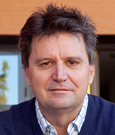
University of Seville
Spain

Institute of Molecular Biology
Germany

Stanford University
USA
Got something to say? Tweet it! #EESGenomeInstability
The following times are used in the programme below:
To find out the equivalent time zone in your location, enter Berlin, the CET programme time and your city into the Time Zone Converter.
| Time | Speaker |
|---|---|
| 15:00-15:15 (CET) 09:00-09:15 (EDT) | Opening remarks by scientific organisers |
| Virtual Session 1: Transcription-associated genomic instability Session chair: Karlene Cimprich | |
| 15:15-15:40 (CET) 09:15-09:40 (EDT) | Ribonucleotide Excision Repair – Genome Instability, Mutagenesis, and Inflammation Andrew Jackson – The University of Edinburgh, UKAVAILABLE ON DEMAND AFTER LIVE STREAM |
| 15:40-15:45 (CET) 09:40-09:45 (EDT) | Transition (to setup and switch to the next live talk) |
| 15:45-16:10 (CET) 09:45-10:10 (EDT) | R-loops in Transcription Coupled DNA Double Strand Break repair Gaëlle Legube – CNRS – University of Toulouse, FranceAVAILABLE ON DEMAND AFTER LIVE STREAM |
| 16:10-16:15 (CET) 10:10-10:15 (EDT) | Transition (to setup and switch to the next live talk) |
| 16:15-16:40 (CET) 10:15-10:40 (EDT) | BRCA1, RAD52 and PALB2 promote novel small RNA-driven DNA repairElodie Hatchi – Dana-Farber Cancer Institute, USAAVAILABLE ON DEMAND AFTER LIVE STREAM |
| 16:40-16:45 (CET) 10:40-10:45 (EDT) | Transition (to setup and switch to the next live talk) |
| 16:45-17:00 (CET)10:45-11:00 (EDT) | DNA replication timing directly regulates the frequency of oncogenic translocationsRushad Pavri – IMP Vienna, Austria |
| 17:00-17:05 (CET)11:00-11:05 (EDT | Transition (to setup and switch to the next live talk) |
| 17:05-17:20 (CET) 11:05-11:20 (EDT) | Rtt101/Cul4 may promote a ribonucleotide excision repair backup pathway in S phase Natalie Schindler – Johannes-Gutenberg University Mainz, Germany |
| 17:20-17:45 (CET) 11:20-11:45 (EDT) | Break |
| 17:45-19:15 (CET) 11:45-13:15 (EDT) | Digital poster session 1 |
| 19:15-19:40 (CET) 13:15-03:40 (EDT) | Toxic R-loops: causes or consequences of DNA replication stress?Philippe Pasero – CNRS – Université de Montpellier, FranceAVAILABLE ON DEMAND AFTER LIVE STREAM |
| 19:40-19:45 (CET) 13:40-13:45 (EDT) | Transition (to setup and switch to the next live talk) |
| 19:45-20:10 (CET) 13:45-14:10 (EDT) | Chromatin dynamics, transcriptional homeostasis, and genome stabilityCraig Peterson – University of Massachusetts Medical School, USAAVAILABLE ON DEMAND AFTER LIVE STREAM |
| 20:10-20:15 (CET) 14:10-14:15 (EDT) | Transition (to setup and switch to the next live talk) |
| 20:15-20:30 (CET) 14:15-14:30 (EDT) | Chromatin-associated MRN complex protects highly transcribing genes from genomic instability Rosemary Kiernan – French National Centre for Scientific Research, FranceAVAILABLE ON DEMAND AFTER LIVE STREAM |
| 20:30-20:35 (CET) 14:30-14:35 (EDT) | Transition (to setup and switch to the next live talk) |
| 20:35-20:50 (CET) 14:35-14:50 (EDT) | Branchpoint translocation by fork remodellers as a general mechanism of R-loop removal Andrew Deans – St Vincent’s Institute of Medical Research, AustraliaAVAILABLE ON DEMAND AFTER LIVE STREAM |
| 20:50-21:00 (CET) 14:50-15:00 (EDT) | Short break |
| 21:00-22:00 (CET) 15:00-16:00 (EDT) | Optional: Virtual Speed networking |
| End of day 1 – Continued access to digital posters, networking and discussion platforms |
| Time | Speaker |
|---|---|
| Session 2 – Responses to transcription and replication stress Chair: Petra Beli | |
| 15:00-15:25 (CET) 09:00-09:25 (EDT) | Transcription during DNA damage and heat-shockJesper Svejstrup – The Francis Crick Institute, UKAVAILABLE ON DEMAND AFTER LIVE STREAM |
| 15:25-15:30 (CET) 09:25-09:30 (EDT) | Transition (to setup and switch to the next live talk) |
| 15:30-15:55 (CET) 09:30-09:55 (EDT) | Resolution of conflicts of stalling RNA Polymerase with the replication fork by the MYCN oncoprotein Martin Eilers – University of Würzburg, Germany |
| 15:55-16:00 (CET) 09:55-10:00 (EDT) | Transition (to setup and switch to the next live talk) |
| 16:00-16:25 (CET) 10:00-10:25 (EDT) | Coordinating chromosome replication with transcription Marco Foiani – University of Milan, Italy |
| 16:25-16:30 (CET) 10:25-10:30 (EDT) | Break (to setup and switch to the next live talk) |
| 16:30-16:45 (CET) 10:30-10:45 (EDT) | A novel function of RNase H activities at arrested DNA replication forks in priming fork-resectionCharlotte Audoynaud – Institut Curie / French National Centre for Scientific Research, FranceAVAILABLE ON DEMAND AFTER LIVE STREAM |
| 16:45-16:50 (CET)10:45-10:50 (EDT) | Transition (to setup and switch to the next live talk) |
| 16:50-17:05 (CET)10:50-11:05 (EDT) | Elongation factor ELOF1 drives transcription-coupled repair and prevents genome instabilityJurgen Marteijn – Erasmus University Medical Center, The NetherlandsAVAILABLE ON DEMAND AFTER LIVE STREAM |
| 17:05-17:30 (CET) 11:05-11:30 (EDT) | Short break |
| 17:30-19:00 (CET) 11:30-13:00 (EDT) | Digital poster session 2 |
| 19:00-19:25 (CET) 13:00-13:25 (EDT) | SF3B1-targeted Splicing Inhibition Triggers Global Alterations in Transcriptional Dynamics and R-Loop Metabolism Frédéric Chédin – University of California, Davis, USAAVAILABLE ON DEMAND AFTER LIVE STREAM |
| 19:25-19:30 (CET) 13:25-13:30 (EDT) | Transition (to setup and switch to the next live talk) |
| 19:30-19:55 (CET) 13:30-13:55 (EDT) | The PBAF chromatin remodelling complex promotes G2/M checkpoint maintenance through regulation of the DREAM complexJessica Downs – The Institute of Cancer Research, UKAVAILABLE ON DEMAND AFTER LIVE STREAM |
| 19:55-20:00 (CET) 13:55-14:00 (EDT) | Transition (to setup and switch to the next live talk) |
| 20:00-20:15 (CET) 14:00-14:15 (EDT) | A regulatory phosphosite on Mec1 controls RNAPII and RNAPIII occupancy during replication stressJérôme Poli – Institute of Human Genetics, FranceAVAILABLE ON DEMAND AFTER LIVE STREAM |
| 20:15-20:20 (CET) 14:15-14:20 (EDT) | Transition (to setup and switch to the next live talk) |
| 20:20-20:35 (CET) 14:20-14:35 (EDT) | Genome-wide analysis of replication fork progression and stalling by TrAEL-seqJon Houseley – Babraham Institute, UKAVAILABLE ON DEMAND AFTER LIVE STREAM |
| 20:35-21:00 (CET) 14:35-15:00 (EDT) | Short break |
| 21:00-21:45 (CES) 15:00-15:45 (EDT) | Optional: Virtual bar mixer |
| End of day 2 – Continued access to digital posters, networking and discussion platforms |
| Time | Speaker |
|---|---|
| Session 3 – Interplay between transcription and DNA repair Chair: Georg Stoecklin | |
| 15:00-15:25 (CET) 09:00-09:25 (EDT) | R-loops act as promoters for antisense transcriptionNicholas Proudfoot – University of Oxford, UK AVAILABLE ON DEMAND AFTER LIVE STREAM |
| 15:25-15:30 (CET) 09:00-09:30 (EDT) | Transition (to setup and switch to the next live talk) |
| 15:30-15:55 (CET) 09:30-09:55 (EDT) | R-loop proximity proteomics identifies a role of DDX41 in transcription-associated genomic instabilityPetra Beli – Institute of Molecular Biology, GermanyAVAILABLE ON DEMAND AFTER LIVE STREAM |
| 15:55-16:00 (CET) 09:55-10:00 (EDT) | Transition (to setup and switch to the next live talk) |
| 16:00-16:25 (CET) 10:00-10:25 (EDT) | Uncovering noncoding RNA roles in the initiation of chromatin replication Maite Huarte – University of Navarre, Spain |
| 16:25-16:30 (CET) 10:25-10:30 (EDT) | Transition (to setup and switch to the next live talk) |
| 16:30-16:45 (CET) 10:30-10:45 (EDT) | Persistence of RNA transcription during DNA replication delays duplication of transcription start sites until G2/MMarco Saponaro – University of Birmingham, UKAVAILABLE ON DEMAND AFTER LIVE STREAM |
| 16:45-16:50 (CET) 10:45-10:50 (EDT) | Transition (to setup and switch to the next live talk) |
| 16:50-17:05 (CET) 10:50-11:05 (EDT) | Mediator link between transcription and DNA repair: new insights from the genome-wide location analysis of Rad26 and Rad1-Rad10Julie Soutourina – CEA, FranceAVAILABLE ON DEMAND AFTER LIVE STREAM |
| 17:05-17:30 (CET) 11:05-11:30 (EDT) | Short break |
| 17:30-19:00 (CET) 11:30-13:00 (EDT) | Digital poster session 3 |
| 19:00-19:25 (CET) 13:00-13:25 (EDT) | The CtIP protein and regulation of R-loop processing in human cells Tanya Paull – University of Texas at Austin, USAAVAILABLE ON DEMAND AFTER LIVE STREAM |
| 19:25-19:30 (CET) 13:25-13:30 (EDT) | Transition (to setup and switch to the next live talk) |
| 19:30-19:55 (CET) 13:30-13:55 (EDT) | Cytoplasmic hybrids derived from nuclear R-loops activate IRF3 signalingMadzia Crossley – AVAILABLE ON DEMAND AFTER LIVE STREAM |
| 19:55-20:00 (CET) 13:55-14:00 (EDT) | Transition (to setup and switch to the next live talk) |
| 20:00-20:15 (CET) 14:00-14:15 (EDT) | Rebuilding of initiation program over large transcribed regions rescues Common Fragile Site instabilityStefano Gnan – Institute Curie, France |
| 20:15-20:20 (CET) 14:15-14:20 (EDT) | Transition (to setup and switch to the next live talk) |
| 20:20-20:35 (CET) 14:20-14:35 (EDT) | Dysregulation of R-loop homeostasis in the aging eyeHana Hall – Purdue University, USAAVAILABLE ON DEMAND AFTER LIVE STREAM |
| End of day 3 – Continued access to digital posters, networking and discussion platforms |
| Time | Speaker |
|---|---|
| Session 4 – Replication-transcription conflictsSession chair: Andres Aguilera | |
| 15:00-15:25 (CET) 09:00-09:25 (EDT) | Genome-wide analysis of DNA replication conflictsHelle Ulrich – Institute of Molecular Biology & Johannes Gutenberg University of Mainz, GermanyAVAILABLE ON DEMAND AFTER LIVE STREAM |
| 15:25-15:30 (CET) 09:25-09:30 (EDT) | Transition (to setup and switch to the next live talk) |
| 15:30-15:55 (CET) 09:30-09:55 (EDT) | Insights into genome stability and aging from the in vivo firing patterns of DNA replication origins in regenerating mouse liversThanos Halazonetis – University of Geneva, Switzerland |
| 15:55-16:00 (CET) 09:55-10:00 (EDT) | Transition (to setup and switch to the next live talk) |
| 16:00-16:25 (CET) 10:00-10:25 (EDT) | The origins of R-Loop formation during replication-transcription conflicts Houra Merrikh – Vanderbilt University, USA |
| 16:25-16:30 (CET) 10:25-10:30 (EDT) | Transition (to setup and switch to the next live talk) |
| 16:30-16:45 (CET) 10:30-10:45 (EDT) | Replicon-seq: A new method to study sister replication fork movement and replication/transcription conflictsClemence Claussin – Memorial Sloan Kettering Cancer Center, USA |
| 16:45-16:50 (CET) 10:45-10:50 (EDT) | Transition (to setup and switch to the next live talk) |
| 16:50-17:05 (CET) 10:50-11:05 (EDT) | Role of MutSß and MutLß proteins in the restart of R-loop-stalled replication forks in human cellsEsin Isik – University of Zurich, Switzerland |
| 17:05-17:30 (CET) 11:05-11:30 (EDT) | Short break |
| 17:30-17:55 (CET) 11:30-11:55 (EDT) | New roles for ATP-dependent chromatin remodelers at transcription-replication conflictsAleix Bayona-Feliu – Andalusian Molecular Biology and Regenerative Medicine Centre (CABIMER), Spain |
| 17:55-18:00 (CET) 11:55-12:00 (EDT) | Transition (to setup and switch to the next live talk) |
| 18:00-18:25 (CET) 12:00-12:25 (EDT) | TIAR is essential for G2/M checkpoint activation and retains CDK1 in nuclear G2/M transition granules upon replication stressGeorg Stoecklin – Heidelberg University, GermanyAVAILABLE ON DEMAND AFTER LIVE STREAM |
| 18:25-18:30 (CET) 12:25-12:30 (EDT) | Transition (to setup and switch to the next live talk) |
| 18:30-18:55 (CET) 12:30-12:55 (EDT) | Sequences that stall replication Julian Sale – MRC Laboratory of Molecular Biology, UKAVAILABLE ON DEMAND AFTER LIVE STREAM |
| 18:55-19:00 (CET) 12:55-13:00 (EDT) | Transition (to setup and switch to the next live talk) |
| 19:00-19:25 (CET) 13:00-13:25 (EDT) | Mechanisms of transcription-replication conflicts in oncogene-induced replication stress Eva Petermann – University of Birmingham, UKAVAILABLE ON DEMAND AFTER LIVE STREAM |
| 19:25-19:30 (CET) 13:25-13:30 (EDT) | Break (to setup and switch to the next live talk) |
| 19:30-19:45 (CET) 13:30-13:45 (EDT) | Reconstitution of directional collisions of a eukaryotic replisome with an R-loop reveals multiple replication fork inhibition mechanismsDirk Remus – Sloan Kettering Institute, USAAVAILABLE ON DEMAND AFTER LIVE STREAM |
| 19:45-19:50 (CET) 13:45-13:50 (EDT) | Transition (to setup and switch to the next live talk) |
| 19:50-20:05 (CET) 13:50-14:05 (EDT) | The THO and TRAMP complexes prevent transcription-replication conflicts and protect against fragility of expanded CAG repeatsCatherine Freudenreich – Tufts University, USA |
| 20:05-20:15 (CET) 14:05-14:15 (EDT) | Closing remarks by scientific organizers & poster prize announcements |
| Continued access to digital posters, networking and discussion platforms |
Registration for this event is now closed.
Registration Fees
| Academia | 190 Euro |
| PhD Student | 140 Euro |
| Industry | 240 Euro |
| EMBL Staff | Intranet access |
Accredited journalists may be eligible to register for a reduced press rate or in some cases for complimentary registration. Registrants may be required to provide accreditation or equivalent proof of press membership after registration. Please contact Lea Hohmann for more information.
Registration will be on a first-come first-served basis. Your place can only be confirmed after payment of the registration fee.
Types of payments accepted are international bank transfers (only up to 8 weeks before event) and credit card payments.
Only registered participants are eligible to submit an abstract. We only accept online abstract submissions.
After registration you can submit your abstract via a separate link that will be provided in the email confirmation. Alternatively, you can access the link on the confirmation page directly after registering. The same login credentials are used for both processes.
Please note:
Title: The title should not exceed 20 words. Only the first word of the title should start with a capital letter and the rest of the title should be in lowercase.
Authors and Affiliations: Please fill in the author’s details as requested in the online form. The compulsory details are: First Name, Last Name, Organisation Name (Affiliation or Company), Country and Email. Mark only one author as the role of First author and please don’t forget to indicate who will be presenting. The order of the authors will be listed as follows: First Author, Co-First Author (alphabetically if multiple), co-author(s) (in the order added by the submitter).
Presentation Types: When submitting your abstract, you can apply for an oral or poster presentation. A selection process will take place with the results announced 2-3 weeks after the abstract submission deadline.
Please check our FAQs pages for further information on how to submit an abstract.
All academic and student registrants are invited to apply for a registration fee waiver, provided by the EMBL Advanced Training Centre Corporate Partnership Programme and EMBO. The registration fee waiver covers the registration sum that you have paid to attend the meeting. Conference participants are not required to pre-pay the registration fee to be selected for a fee waiver for a virtual meeting. If you have already paid the registration fee and are awarded a fee waiver, it will be reimbursed after the meeting.
For participants and speakers with childcare responsibilities there is the possibility to apply for a grant, provided by the EMBL Advanced Training Centre Corporate Partnership Programme and EMBO, to offset childcare costs incurred when participating at a virtual event. Eligible costs include fees for a babysitter or childcare facility or travel costs for a care giver. Please note that priority will be given to early stage researchers. Costs will be reimbursed after the meeting only once a reimbursement form and original receipts have been received. In order to apply for this grant, you must be registered by the abstract submission deadline.
Applications for financial assistance can be submitted via the submission portal* (for the submission of abstracts for conferences or the submission of motivation letters for courses) by completing the Financial Assistance Application Section (underneath the section for entering abstract/motivation letter information). The link to the portal can be found in the registration confirmation email that you will receive after registering for the conference or course.
For conferences, if you are not submitting an abstract, you can still apply for financial assistance in the submission portal by following the instructions here. Note that priority will be given to those submitting an abstract to present at the conference. In your application you will be asked to answer questions regarding your motivation for applying, and, for registration fee waivers, the reasons why your lab cannot fund your attendance and how your attendance will make a difference to your career. Application for financial support will not affect the outcome of your registration application.
*For some events, applications for Childcare Grants will still be done by email. Information about the grant will be sent out shortly after the abstract/motivation letter deadline. Please contact the event Conference Officer if you have any questions.
The scientific organisers will select the recipients of registration fee waivers during the abstract selection process for conferences and the participant selection process for courses. Results will be announced approximately 3 – 4 weeks before the event start date. Selection results do not impact your admission to the meeting. Registration fee waiver selection is based on your current work or study location, your motivation for applying, the reasons for needing financial support and the impact this event will have on your career. Childcare grants are allocated based on career stage, with priority given to early stage researchers.
A list of external funding opportunities can be found here, and information on attending a conference as an event reporter here.
For further information about financial assistance please refer to the FAQ page.
Please do:
Please don’t:
Additional information can be found in our Code of Conduct.
It is important to stay healthy and move around, especially when you are attending an event virtually. We have put together a few coffee break stretches and yoga videos. You can find these under ‘resources’ on the conference platform.
Please use the Q&A function. It is possible to send a direct message to participants, poster presenters, and speakers within the conference platform.
If you have any other questions, you can go to the Help Desk on the conference platform. Click on ‘more’ on the top menu and click Help Desk.
The programme is planned based on Central European Time (CET) or Central European Summer Time (CEST) unless otherwise stated. As many virtual participants are attending from around the world, we do our best to accommodate as many timezones as possible when creating the programme. Please take your time zone into consideration when planning your attendance. Remember to set your time zone in your account.
We are using a virtual event platform for this conference. More information about the platform will be shared ahead of the conference.
Interested to find more about our upcoming conferences? Sign up for our events newsletter.
Follow us on Twitter @EMBLEvents or visit our Facebook page to stay up to date with all of our events!
Media Partners:
EMBO Journal, an EMBO Press journal
Open Biology, a Royal Society journal
Sponsorship Opportunities
We offer a variety of event sponsoring possibilities, with the flexibility to select a set sponsorship package or combine individual sponsorship options to suit your event budget. Discounts are available for companies sponsoring multiple events at EMBL Heidelberg. View other conferences, or contact sponsorship@embl.de for further information.
If you are interested in becoming a media partner of this event, please visit our media partnerships webpage.
EMBO | EMBL Symposia promote scientific communication and collaboration in the European research area. They provide scientists with a platform to discuss and exchange ideas on forward-looking topics and new developments in the life sciences.
Topics emphasise upcoming developments and the interdisciplinary nature of related fields. Jointly funded and organised by EMBO and EMBL – and complementary to their respective courses, workshops, and conference programmes – the symposia promote scientific communication and collaboration.
All symposia are held in the EMBL Advanced Training Centre (ATC) in Heidelberg, Germany, or virtually.
Date: 9 - 12 Mar 2021
Location: Virtual
Deadline(s):
Abstract submission: Closed
Registration: Closed
Contact: Lea Hohmann